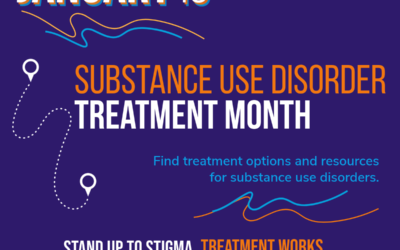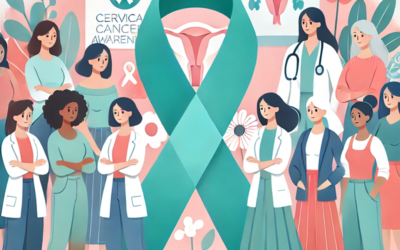As the days grow shorter and colder, many people experience shifts in mood. For some, these changes go beyond a case of the “winter blues” and become a condition called Seasonal Affective Disorder (SAD). SAD is a type of depression that affects millions of Americans each year, often triggered by the changing seasons. At Primary Health Care, we’re here to help you manage your mental health with our behavioral health services.
Why It’s Important
Seasonal Affective Disorder can significantly impact daily life, causing feelings of sadness, fatigue, and difficulty concentrating. While SAD is most common during fall and winter, some people may experience symptoms during spring or summer. Recognizing the symptoms and seeking help early can improve your quality of life and help prevent the condition from worsening.
What to Expect
SAD is a form of depression, and its symptoms include:
- Feeling sad or hopeless.
- Low energy or fatigue.
- Loss of interest in activities you usually enjoy.
- Difficulty sleeping or oversleeping.
- Changes in appetite or weight.
- Trouble concentrating or focusing.
While the exact cause of SAD isn’t fully understood, factors like reduced sunlight, disruptions in your biological clock (circadian rhythm), and imbalances in serotonin and melatonin levels may play a role.
Managing SAD
If you think you might have SAD, there are steps you can take to feel better:
- Light Therapy: Using a special light box can help regulate your mood by mimicking natural sunlight.
- Physical Activity: Regular exercise can boost your mood and energy levels.
- Counseling or Therapy: Cognitive Behavioral Therapy (CBT) is an effective approach for managing SAD.
- Medication: Antidepressants can help some people manage symptoms, especially if started before symptoms begin each season.
 PHC Behavioral Health Services
PHC Behavioral Health Services
At Primary Health Care, we offer behavioral health services to support you through seasonal changes and beyond. Our providers are here to help you create a personalized care plan, whether it includes therapy, medication, or both. We accept Medicaid, private insurance, and offer a sliding fee scale for those without coverage.
Take Control of Your Mental Health
Seasonal Affective Disorder is manageable with the right care and resources. If you’re feeling the effects of SAD, don’t wait to seek help. Visit any Primary Health Care location to learn more about our behavioral health services and take the first step toward feeling better.
Sources:
- Mayo Clinic. (n.d.). Seasonal Affective Disorder (SAD). Retrieved from https://www.mayoclinic.org/diseases-conditions/seasonal-affective-disorder.
- American Psychiatric Association. (n.d.). What Is Seasonal Affective Disorder? Retrieved from https://www.psychiatry.org/patients-families/depression/seasonal-affective-disorder.
- National Institute of Mental Health (NIMH). (n.d.). Seasonal Affective Disorder. Retrieved from https://www.nimh.nih.gov/health/publications/seasonal-affective-disorder.
Related Post
Making It OK: Let’s Talk About Mental Health
May is Mental Health Awareness Month—a time when communities come together to remind everyone that discussing mental health is not only acceptable, it’s essential. At Primary Health Care, we believe that every conversation matters. When we share our feelings,...
Breaking the Stigma: Students Speak Out on Mental Health
PHC's Student Advisory Council took over Polk County Health Department's By The Numbers podcast to talk about teens and mental health. Watch both Part 1 and Part 2 here!By the Numbers- Health Ya! Part 1: Youth Mental Health with the PHC Student Advisory CouncilBy the...
Feeling Overwhelmed? Discover 5 Simple Stress-Busting Techniques You Can Start Today
April is Stress Awareness Month, a time to recognize the impact stress has on our lives and learn effective ways to manage it. Stress affects everyone differently—what's stressful for one person might not be for another. Both joyful events, like a new job or moving...
STOP Eating These Foods If You’re Stressed!
Cortisol is a hormone our bodies make when we're stressed. It helps us handle tough situations, but too much for too long can harm our health. Some foods can raise cortisol levels, making stress harder to manage. Let’s learn about these foods and how to make healthier...
Colon Cancer Can Be Silent—But This Simple Test Could Save Your Life!
Colorectal cancer is a type of cancer that starts in the colon or rectum. It's one of the most common cancers in the United States, but it's also one of the most preventable. Regular screening can find this cancer early, when treatment works best. Who Should Get...
Celebrating National School-Based Health Care Awareness Month
February is National School-Based Health Care Awareness Month, a time to recognize the vital role that school-based health centers (SBHCs) play in supporting student health and academic success. By providing accessible, on-site medical and behavioral health services,...
Take the First Step Toward Recovery: Learn About PHC’s MAT/MOUD Program
This January marks the first-ever Substance Use Disorder Treatment Month, launched by the Center for Substance Abuse Treatment at the Substance Abuse and Mental Health Services Administration (SAMHSA). This national observance aims to raise awareness of effective,...
Protect Your Health: January is Cervical Cancer Awareness Month
January is Cervical Cancer Awareness Month Cervical cancer is one of the most preventable types of cancer, yet it affects thousands of women each year. In the United States, about 13,960 new cases of invasive cervical cancer were diagnosed in 2023, and approximately...








